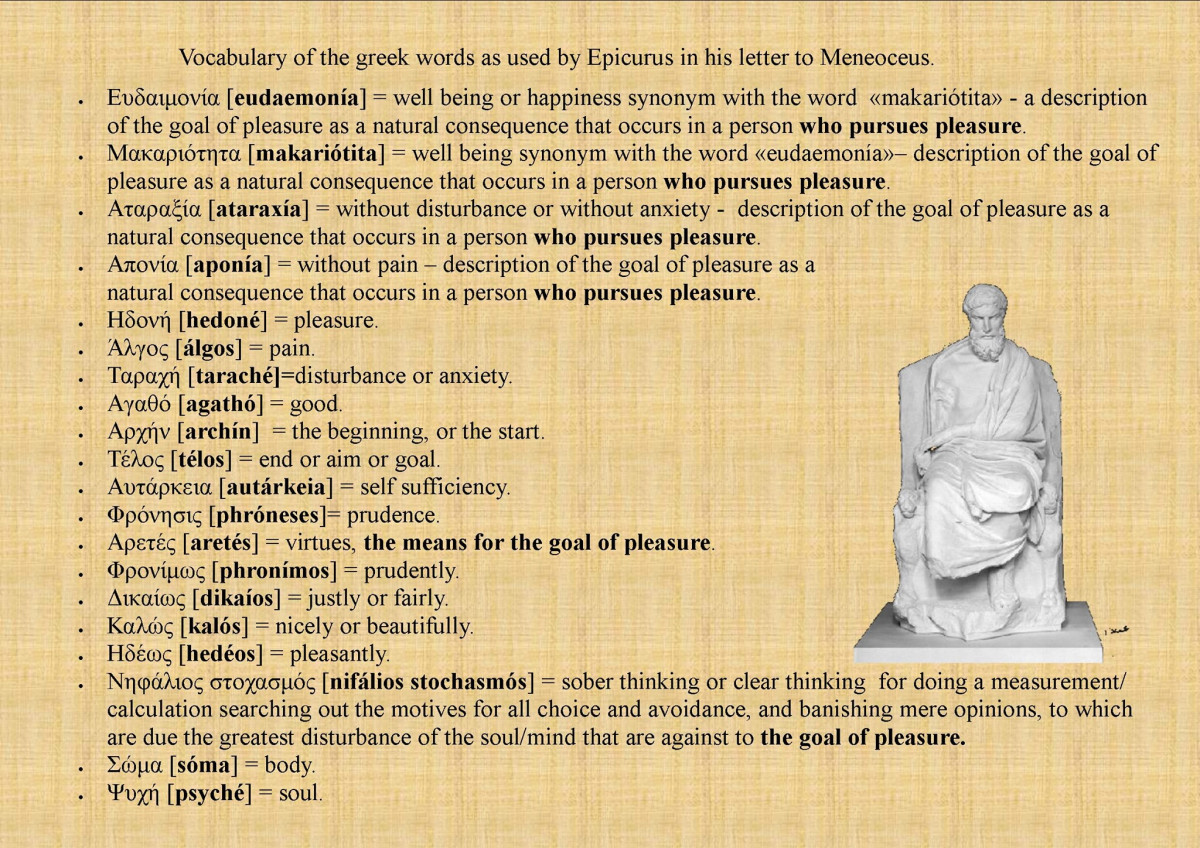"Ataraxia" is a key term in Epicurean philosophy. What exactly does it mean? There seems to be a consensus that it translates to "absence of disturbance," but is this a reference to bodily disturbance, to mental disturbance, to both, or with other connotations? How is "disturbance" different from "pain?" This thread is for discussion of the meaning of "Ataraxia," including citations to reference where the term appears in Epicurean texts.
ἀταραξία - Ancient Greek (LSJ)
Ion. ἀταραξίη, ἡ, impassiveness, calmness, ataraxia, unperturbedness, imperturbability, equanimity, tranquility Democr. ap. Stob.2.7.3i, Hp.Ep.12, Epicur.Ep.1p.30U., Phld.Oec.p.63 J., Cic.Fam.15.19.2, Hero Bel.71.2, Plu.2.101b, Plot. 1.4.1, etc.; prob. f.l. for ἀταξία in Hp.Praec.14.
For the time being - Elli's vocabulary list -- which is excellent - but which unfortunately we cannot expect most new people to have access to:


